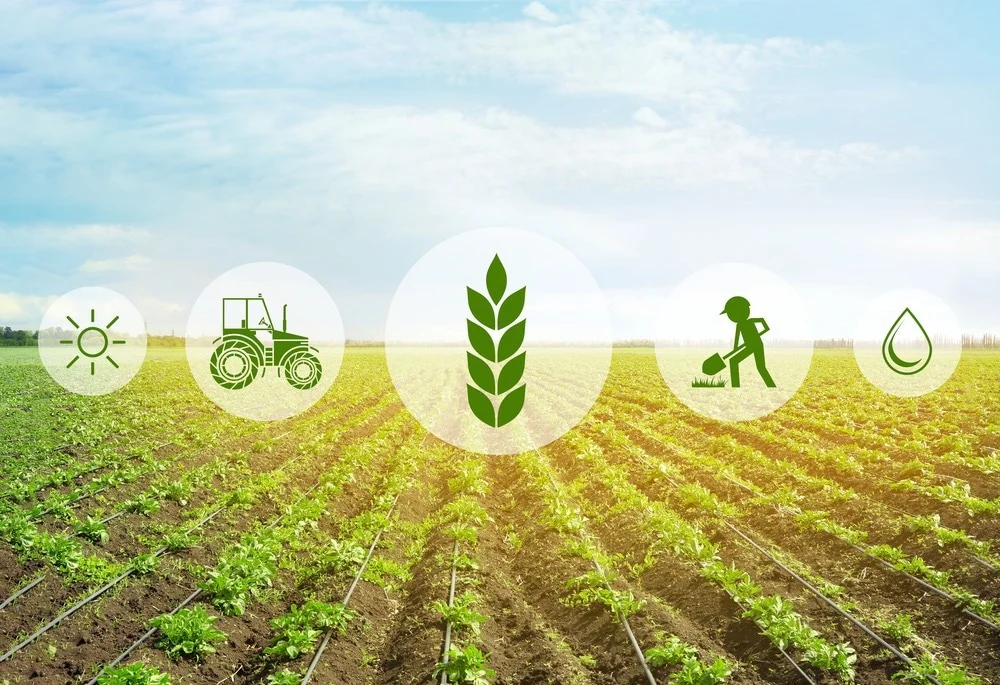
Course Description
Course Overview
This interdisciplinary course explores modern agricultural practices, sustainable food production systems, and emerging technologies shaping the future of farming. Students will examine the entire food value chain – from soil science and crop cultivation to harvest technologies and food distribution – while addressing critical challenges like climate change, food security, and resource management.
Course Objectives
By completing this course, students will:
-
Understand fundamental principles of soil science, plant biology, and animal husbandry
-
Analyze conventional vs. sustainable farming methods
-
Evaluate modern agricultural technologies (precision farming, hydroponics, IoT)
-
Examine global food systems and supply chain dynamics
-
Develop skills in crop planning, pest management, and yield optimization
-
Assess environmental impacts and sustainability metrics
-
Explore policy frameworks and economic aspects of agriculture
-
Apply knowledge through field studies and case analyses
Course Benefits
• Practical Knowledge: Hands-on learning with field visits and lab work
• Industry-Relevant Skills: Training in precision agriculture tools and techniques
• Sustainability Focus: Understanding of regenerative practices and circular economies
• Career Pathways: Preparation for diverse roles in agribusiness, research, and policy
• Global Perspective: Analysis of international food systems and trade
• Certification: Professional credential for agricultural careers
Course Outline
Module 1: Foundations of Agriculture
-
History of agricultural development
-
Basic soil science and chemistry
-
Plant physiology and growth cycles
Module 2: Crop Production Systems
-
Field crop cultivation techniques
-
Horticulture and specialty crops
-
Organic vs conventional farming
Module 3: Soil and Water Management
-
Soil conservation practices
-
Irrigation technologies
-
Nutrient management
Module 4: Pest and Disease Control
-
Integrated Pest Management (IPM)
-
Biological control methods
-
Pesticide use and regulations
Module 5: Agricultural Technology
-
Precision farming tools
-
Drones and remote sensing
-
Automation in agriculture
Module 6: Animal Husbandry
-
Livestock management
-
Poultry and dairy production
-
Animal nutrition
Module 7: Food Processing & Safety
-
Post-harvest handling
-
Food preservation techniques
-
Quality control standards
Module 8: Agricultural Economics
-
Farm business management
-
Commodity markets
-
Agricultural policies
Module 9: Sustainable Practices
-
Agroecology principles
-
Climate-smart agriculture
-
Circular food systems
Module 10: Capstone Project
-
Design a sustainable farm plan
-
Analyze a real-world agricultural challenge
-
Present solutions to industry panel
Learning Components
-
Fieldwork: Farm visits and practical demonstrations (20%)
-
Lab Work: Soil testing, plant analysis (15%)
-
Case Studies: Global agricultural systems (25%)
-
Technology Training: GIS, farm management software (15%)
-
Final Project: Sustainable production plan (25%)
Resources & Tools
-
Required: Soil testing kits, weather monitoring tools
-
Software: FarmLogs, QGIS, Cropio
-
Field Manuals: USDA guidelines, FAO technical documents
This course combines scientific rigor with practical applications, preparing students for careers in modern agriculture while addressing pressing global food challenges. The program can be adapted for vocational training or university-level instruction.


